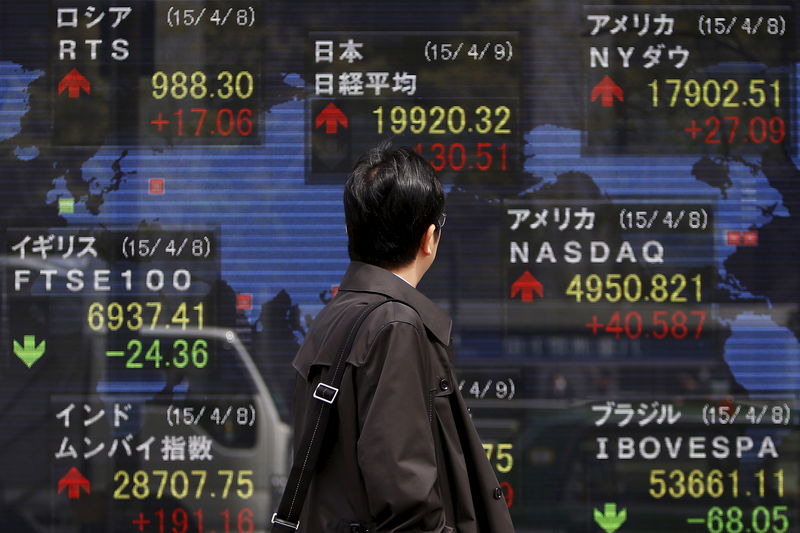By Gina Lee
Investing.com – Asia Pacific stocks were up on Wednesday morning but took a pause as the continuous spread of COVID-19 globally makes concerns over its impact on the economic recovery hard to shake off.
Japan’s Nikkei 225 was up 0.35% by 9:45 PM ET (1:45 AM GMT) and South Korea’s KOSPI was up 0.24%.
In Australia, the ASX 200 inched up 0.08%.
Hong Kong’s Hang Seng Index was up 0.21%.
China’s Shanghai Composite edged down 0.15% while the Shenzhen Component slid 2.33%. The country’s intensified regulatory tightening impacted companies such as Alibaba (NYSE:BABA) Group Holding Ltd. (HK:9988), Baidu (NASDAQ:BIDU) Inc. (HK:9888) and JD.com Inc. (NASDAQ:JD) and caused another tumble in Chinese equities listed in the U.S.
The debate also continues on whether inflation will be temporary and when central banks will begin asset tapering.
The Reserve Bank of New Zealand cut its interest rate to 0.25% from the previous 0.5% as it handed down its policy decision earlier in the day. The country enterered a lockdown after reporting its first COVID-19 community transmission since February 2020.
Investors now await the latest U.S. Federal Reserve minutes, due later in the day.
Fed Chair Jerome Powell admitted that COVID-19 is “still casting a shadow on economic activity” at a town hall meeting on Tuesday, but did not elaborate further on the subject. However, the Fed’s Jackson Hole symposium taking place in the following week could offer more clues about the Fed timetable for asset tapering and interest rate hikes.
On the data front, U.S. retail sales entered contraction territory, falling 1.1% month-on-month and core retail sales falling 0.4% month-on-month in July.
For some investors, the pause was a much-needed one after global shares’ 90% advance from 2020’s lows.
“So much growth is priced in and it’s really a question of being able to deliver on that earnings-per-share and whether these multiples are warranted... the big thing I am worried about is whether we are going to have an environment where we see higher prices but not necessarily the growth that people are expecting,” Quadratic Capital Management founder and chief investment officer Nancy Davis told Bloomberg.
